The image of the prime minister posing with his scepter, juxtaposed with the sight of police lathi-charging women wrestlers outside the new parliament, baffled me – like many others. Every time the image popped up on my screen, it ignited a simmering rage that served as a reminder of the challenges of living in it as a woman. In this evolving political landscape, I often find myself grappling with a range of emotions triggered by the images and events that surround me. Again, like many others.
Anger seems to be the most appropriate word to describe the stir that these create inside of me. Faced with this, I feel torn between different courses of action. A part of me yearns to drop everything and physically join the fight to lend my voice and presence to the cause. Another part of me feels the need to express my outrage through lengthy social media posts, hoping to ignite a conversation and at least find solace in solidarity. And yet, doubts creep in…
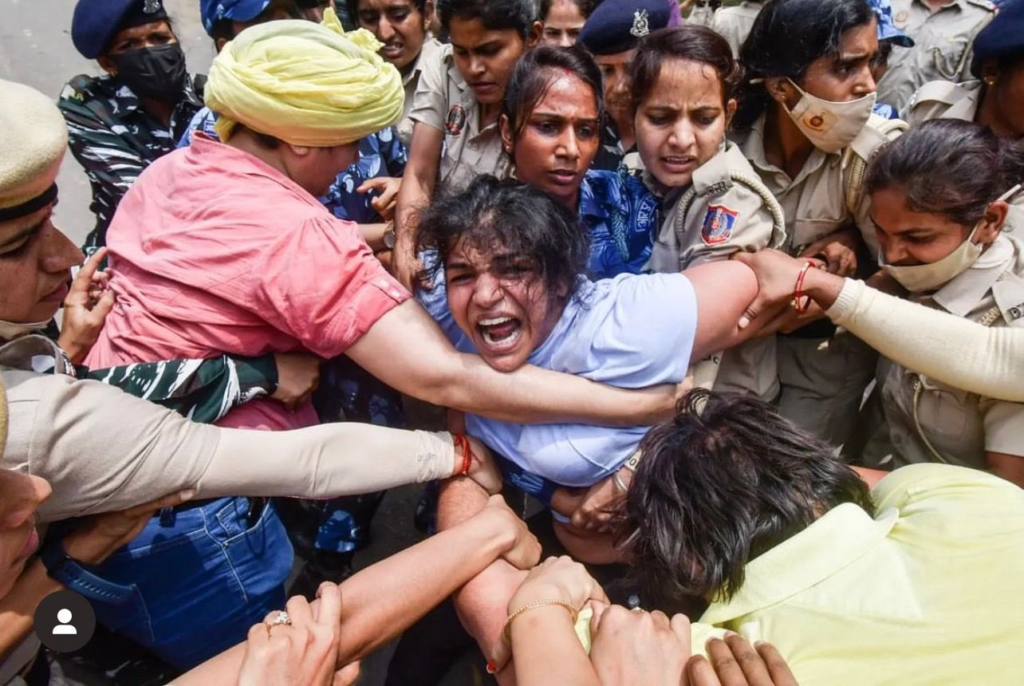
Will my physical presence make any difference at all? Won’t my Instagram posts be lost in an overwhelming sea of content? Will any of it truly change the deeply ingrained biases and systems that perpetuate inequality? The fear of shouting into the void, of my anger and efforts being in vain, leaves me uncertain about the most effective way to deal with this feeling. Helplessness. The root of all personal miseries we dwell in.
Unable to sit with the overwhelming rage or simply dismiss it, I turn to the pages of my journal as a form of release. Scribbling my thoughts on it makes it a space where my anger is acknowledged and explored. However, its immediate impact feels limited. I sit on my bed as I write this, the room dimly lit by the soothing yellow fairy lights. If anyone were to walk into the room right now, the calm of the surrounding would give no hint to the shades of red in my eyes.
How could I be so angry with something that was happening 900 kilometers away, in which I had no personal stake? Was it because I had always been the angry one? Or was it because I was experiencing it all alone andthe source causing it was beyond the reach of my rage? Others have censored my anger multiple times. But today is the first time I find myself trying to suppress it. How is it that other people have called me the angry one all along and I still didn’t find a safe space to express anger without any backlash?
For the past year, as a fellow, I work with women to enable them in accessing better livelihoods opportunities. Eventually, the hope is that this will translate to them building their own agency over their life and circumstances. To be able to translate thought into action, at a personal level, is what empowerment should feel like. In the wake of that, given this anger and the ensuing helplessness, where do i stand after a year?
But this isn’t like all the other times I have felt or expressed anger. This is not like the times I used to get angry at my brother, turning his mischief into full-blown tussles. This is not like the anger I feel when someone at work slacks off despite multiple warnings. This definitely was not what I expressed when I got into fights with my best friend. This anger, although deeply personal like all the other times, was intricately situated within a systemic context.
In all of the previous instances all I could think of when I was angry was causing harm. How could I cause the other person enough hurt physically or emotionally that that would match the intensity of my anger? This later type however wanted to cause no harm. It did not stem from a place of power, quite the contrary actually.
It was rage that stemmed from centuries of oppression, discrimination, and violence. It’s not merely an individual experience but a response to the societal structures that perpetuate inequality and oppression. It is an emotion that runs deep within me, surfacing when we witness injustices or feel the weight of societal inequalities; constantly confronted with situations that make us feel small and helpless. And that perhaps is the fundamental difference between harm and wrong. This anger is coming from a place of being wronged.
Different shades of anger might stem from different places inside and outside of us. But one thing that remains constant is that anger no matter what shade, will be perceived as a negative. This discomfort I feel when expressing it as a woman is certainly not strange. This conditioning shapes our responses and forces us to tame it. It is a complex dance of balancing our right to anger with the fear of alienation.
Also read: From Fear To Empowerment: Navigating Gender Politics And Insecurity
I would like to see this shade of anger we feel collectively a little differently though. This anger is our brand of optimism that drives us to fight for change, to challenge the existing structures that oppress us. It is essential that we recognize that our anger is a powerful force. One needs to be acknowledge, express, and channel it effectively.
Today, the global collection of women’s experiences can no longer be ignored. Time’s up on thinking that we’re overreacting or “This is just the way it is.” Our culture is shifting, and it’s time. So my fellow women and our men, as we are here together within this particular window of this large-scale movement towards women’s equality, and as we envision a future that does not yet exist, we both have different invitations.
Men, I call you in as allies, as we work together towards change. May you be accountable and self-reflective, compassionate and open. May you ask how you can support a woman and be of service to change. And may you get help if you need it. And women, I encourage you to acknowledge your fury. Give it language. Share it in safe places of identification and in safe ways. Your fury is not something to be afraid of. It holds lifetimes of wisdom. Let it breathe and listen.

Mahila, Didi, and Women ought to be the words I’ve used the most in the last year, in conversations or in writing. Every other blog I have written has some connection to women. It seems justified considering I work in the women’s empowerment space. Even as I start to write this, while picking a topic, I think to myself, “Bahut mahila mahila nahi ho raha?”. The mind actively tries to find justifiable reasons for this obsession. I spend a considerable amount of time surrounded by women, be it women from the community that come to stitch and weave at the Kala Kendra daily, the team that I work with or the friends I talk to over the phone.
Just the sheer amount of interactions I have with women compared to men could probably be reason enough. The more time I spend in these interactions, the more I tend to think about the space between us – both physical as well as emotional and how they inform each other.
What About A Space Makes Women Feel Comfortable?
My workplace is an all women’s space. It is not that there is a policy against hiring men but it so happens that the federation office in Maheshwar does not have any male employees. That’s one of the upsides for women to come and work here. That is also what we tell women from the community to make them and their families comfortable with the idea of them working outside their homes. The absence of males in the space seems to become a marker of the perceived sense of safety.
This perceived sense of safety is a huge factor in women’s decision to work. There are a lot of readymade stitching centers in and around Maheshwar that employ women. But the managers are usually men.
Reenu Didi who has worked at one of these centers shares how nothing bad happened while she was working there but there was a lot of apprehension she and especially her family felt with her going and working there. In a place where women still keep their ghoonghat on and hesitate to sit on chairs, it is not very common for women to work outside of their homes. So having a space that both the women and their families feel comfortable about becomes important.
Many places like the stitching centers also do not allow children in the workplace. Most women are permitted to work but on condition that it does not make them deprioritise domestic responsibilities. Childcare happens to be one which becomes a hard one to tick off for these working women. So an all women’s space also means where they can bring their children. I see how our director re-iterates similar ideas or thoughts every time she meets the women and how that helps build on the sense of safety and support in the work environment.
Why Do I Feel A Sense Of Empowerment In An All Women’s Space?
There’s a strong sense of belonging that I feel with all these people despite being from a different place. Not only that but also a different class and a different set of life experiences. This belonging was a result of spending hours working together, in frustration, having arguments. Then sharing inside jokes and meals. Working in the same space that they work has helped me break a lot more boundaries. I couldn’t do it by sitting in the dedicated office space.
It makes it easy for them to know and understand what is it that I do to support their work. It comes with the acknowledgement that our struggles might be different but we struggle nevertheless and in coming together there is maybe some resort we can find. It comes by recognising that what we do is not easy.
This sense of comfort in all women’s spaces has been a common thread in many of my life experiences. I consider myself to be lucky in circles of women that make you feel empowered. The way we share and support each other. I question if this might be a classic case of confirmation bias?
It is largely in these women’s circles or with female friends or mentors I find myself discussing the big and important things, asking existential questions. I feel like the comfort in these circle has a non-judgemental quality to it which helps bring about deeper conversations. The absence of men also makes these spaces interesting to discuss things we feel shameful about talking publicly eg. sex. Not a bad beginning atleast.
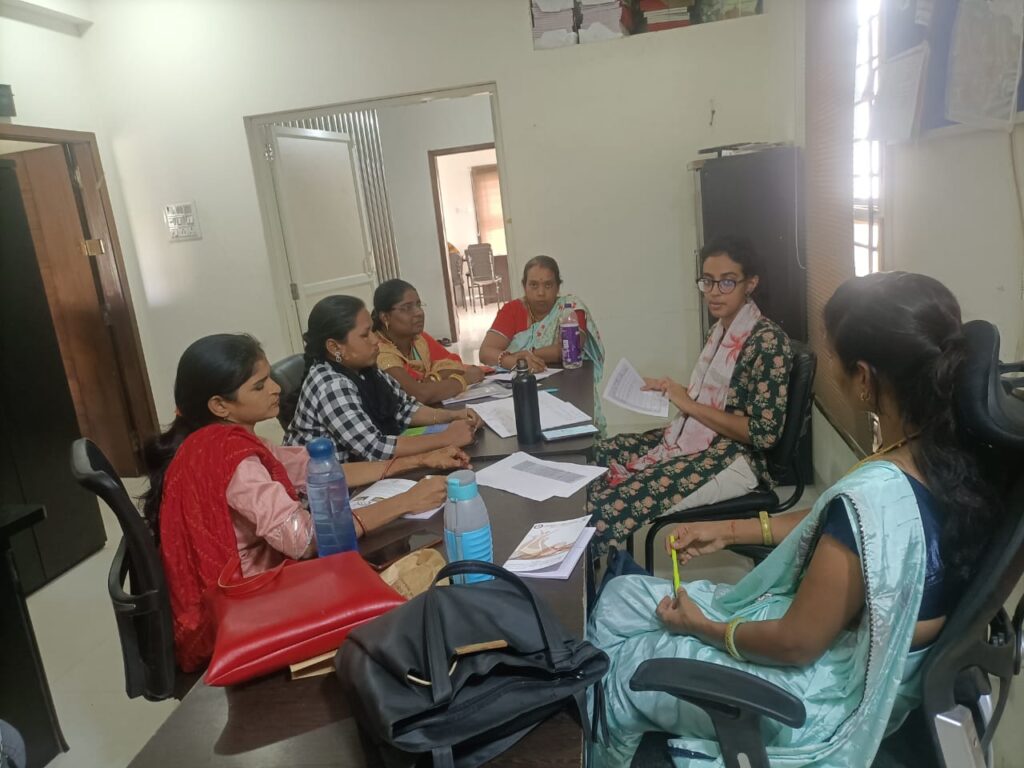

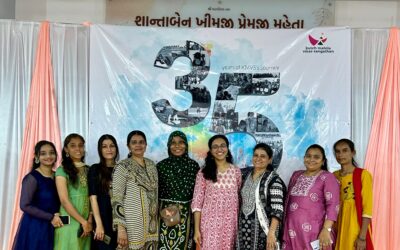
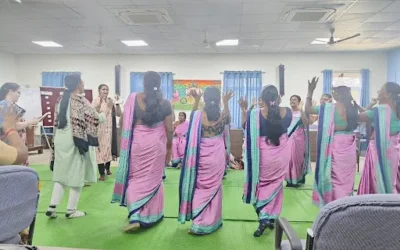
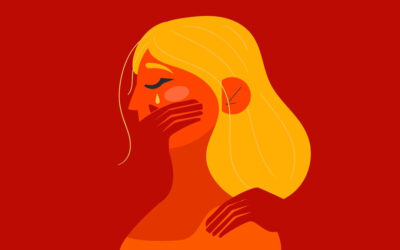
What’s the next step then? Having women only spaces will have the similar effect that men only spaces had for decades. How can men and women have workspaces where they can be as free as they are in otherwise situations?